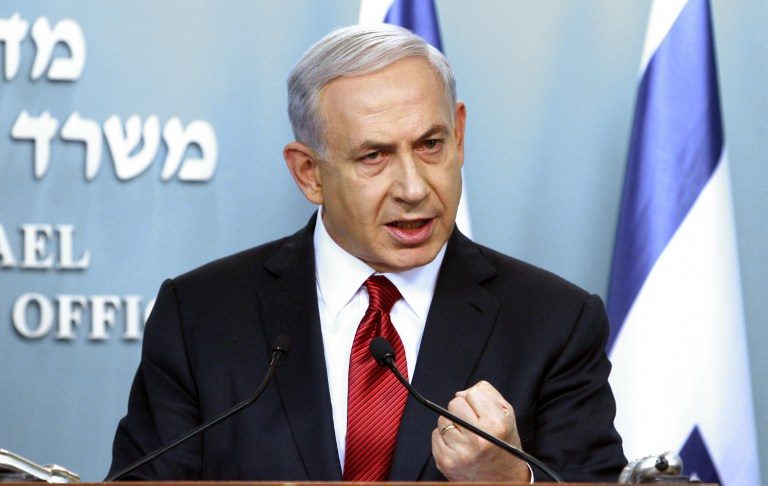SUMMARY
This is AI generated summarization, which may have errors. For context, always refer to the full article.

JERUSALEM – Lawmakers in the Israeli parliament on Monday, December 8, voted to dissolve the assembly and confirmed March 17 as the date for a snap general election.
At the end of a televised debate, members in the Knesset voted 93-0 in favor of a dissolution bill sponsored by opposition parties.
“The prime minister of Israel made two mistakes,” said former finance minister Yair Lapid, who led his Yesh Atid party into opposition last week after being fired by premier Benjamin Netanyahu.
“His first mistake was when he took Israel into totally unneccessary elections,” Lapid said from the Knesset podium. “The second mistake is that he will lose.”
After Lapid and fellow centrist, HaTnuah party head and justice minister Tzipi Livni were fired last Tuesday a bill to dissolve parliament was passed into law on Monday evening.
The last general election was in January 2013, and the next poll had not been officially due until November 2017.
Cracks in Netanyahu’s right-leaning coalition emerged over the 2015 budget and a contentious bill aimed at enshrining Israel’s status as the Jewish state in law, a move critics say would institutionalise discrimination against minorities including Arabs.
According to the latest polls, Netanyahu’s Likud is expected to win 22 to 24 seats in parliament, compared with the 18 it now holds.
Observers say another right-wing government would reduce the chances of resuming the Middle East peace process, after the last round of US-backed negotiations collapsed in April, notably over the issue of Israel’s settlement building on Palestinian territory.
Hardline ministers in Netanyahu’s coalition have pushed to step up the construction of Jewish settler homes in the occupied West Bank and annexed east Jerusalem, drawing international condemnation and angering Palestinians who want that land for their future state.
Parliament’s last minute rush
In the final hours of the parliament’s life, ahead of the vote to disperse, its finance committee voted an extra 3.6 billion shekels ($902 million, 736 million euros) to the 2014 defence budget to make up for expenditure during the 50-day summer war in the Gaza Strip.
A plan to spend 120 million shekels on infrastructure for existing West Bank settlements was shelved when it failed to garner sufficient support among the committee members, public radio said.
The Knesset passed into law a bill aimed at curbing illegal immigration after judges quashed two earlier laws as repressive.
The new act determines that anyone entering Israel illegally can be held in Saharonim detention centre for up to three months, after which he or she will be moved to another detention facility called Holot for a period of up to 20 months. Both facilities are deep in southern Israel’s Negev desert.
It also lays out stiffer penalties for those employing “infiltrators” – a government term for illegal migrants, most of them Africans who slipped across the border from Egypt.
“With a great effort we managed to get the law enacted and prevent the closure of the Holot facility,” Interior Minister Gilad Erdan said in a statement.
On September 22, the Israeli High Court struck down a law which allowed the government to detain illegal migrants for up to a year without trial.
It also ordered the closure of Holot within 90 days. There are around 2,000 African detainees currently being held there out of an estimated 48,000 currently living in Israel.
Exactly a year earlier, the court blocked a similar law allowing migrants to be held for up to three years without trial.
Opposition MP Nitzan Horowitz, of the left-wing Meretz party, said that the latest incarnation would meet the same fate.
“This time too I tell you, clearly and unequivocally, this law too will be overturned by the High Court,” he told the house.
“In a democratic state you cannot put people in prison without trial,” he said. – Rappler.com
Add a comment
How does this make you feel?





There are no comments yet. Add your comment to start the conversation.